Public hearing on rezoning enters first session, expected to take days to complete
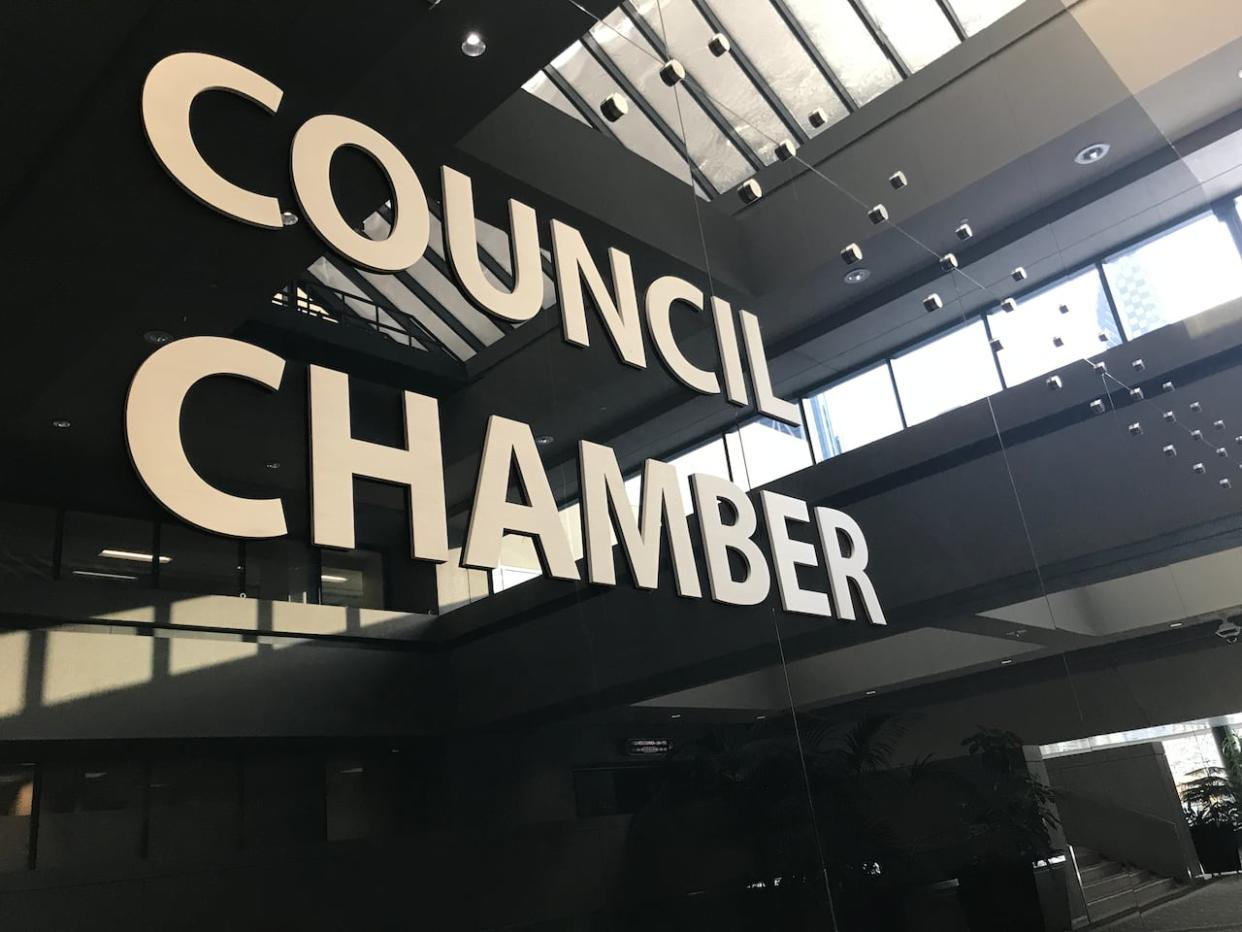
Calgary's public hearing on blanket rezoning kicked off Monday, marking the start of what is slated to be the largest-ever public hearing to hit city council.
According to the city as of Monday morning, 741 people have signed up to speak at the hearing. Council will hear from people in panels of five, and each person is allowed to speak for five minutes.
The blanket rezoning proposal is just one of the many actions in the city's housing strategy that was approved by council last year, and city administration believes it's a key part of increasing supply and addressing the housing crisis.
The strategy, if it's approved, would allow for different housing types, such as townhomes and rowhouses, to be built in neighbourhoods that currently only allow single-family homes.
As the hearing began, the city cited the 2023 Housing Needs Assessment, which identified that one in five Calgarians struggle to afford their housing costs. The report also states that the median cost to purchase a detached home went up by 37 per cent over the last three years.
Proponents say citywide rezoning will not change communities overnight, and that it's a step in the right direction to create more housing opportunities.
One Calgary resident and the first speaker of the day, Colin McCann, said he believes this proposal will remove red tape for property owners.
"I'm sure that many of us here have noticed a distinct partisan shift in tone in this debate around upzoning since the federal and the provincial governments got involved," McCann told council.
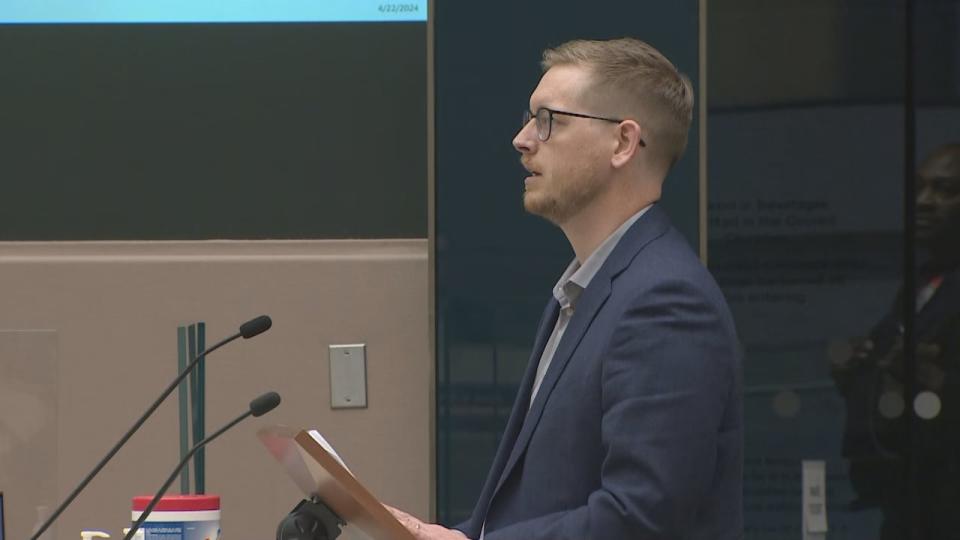
Colin McCann, the public hearing's first speaker of the day, says he supports blanket rezoning. He believes the proposal cuts red tape and limits government involvement in property ownership. (Mike Symington/CBC)
"I'd like to spend these five minutes trying to diffuse some of that, and offer up why I support upzoning despite being a staunch conservative and a homeowner in an area that is supposedly under threat of increased development by this proposal."
McCann believes Calgary is Canada's "most entrepreneurial" city, and like many other Canadians, he was attracted to the area because of its relative affordability compared to other markets.
Now, McCann said he feels as though he has a responsibility to address the issue of housing availability and affordability because of his decision to move.
"This upzoning proposal gets government out of the way and lets us gently build our way out of this hole," he said. "Other Canadian cities, like the one I fled, want to take the statist approach and have big government swoop in and make the problem worse."
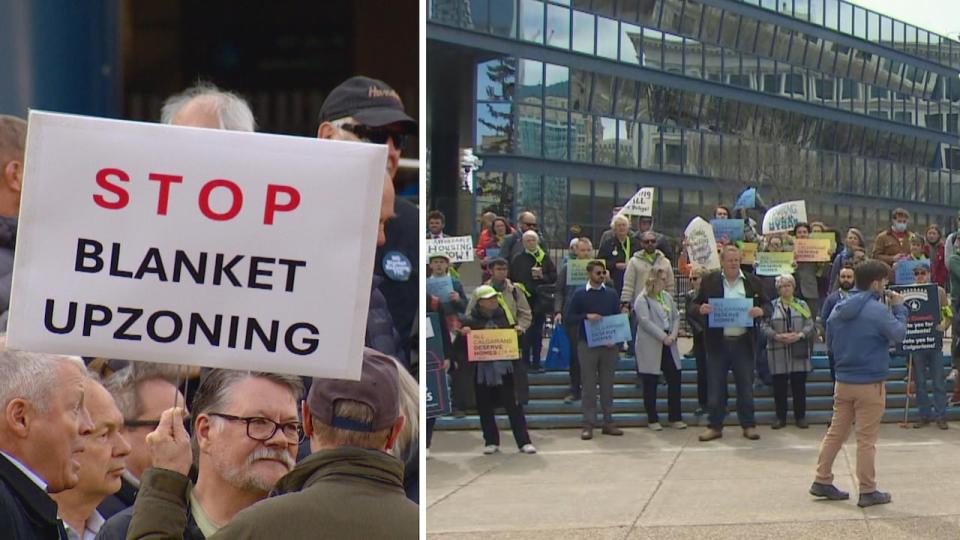
Rallies both opposed to, left, and in support of, right, the city's blanket rezoning proposal gathered outside City Hall on Monday. (Anne-Marie Trickey/CBC, Mike Symington/CBC)
The city's What We Heard report, released following public engagement on the rezoning proposal, notes that the city received comments from 1,050 participants at nine project information sessions, 465 participants from various webinars, and 4,959 comments from 3,930 participants through the city's online engagement portal.
The majority of the comments received were from opponents to the proposal. Approximately 70 per cent of respondents expressed concern about rezoning, while the remaining 30 per cent were in favour.
Not about NIMBY
Those opposed to the zoning change voiced a number of concerns on Monday, expressing that it could diminish property values, create a strain on infrastructure and parking, reduce trees, and fundamentally alter the character of their neighbourhoods.
Barbara Jessiman, who lives in the northwest community of Bowness, chatted with CBC News outside City Hall, where various rallies both in support of and opposed to the proposal gathered. She said she's planning on speaking during the hearing to defend the rights of Calgarians who wish to say no to blanket rezoning.
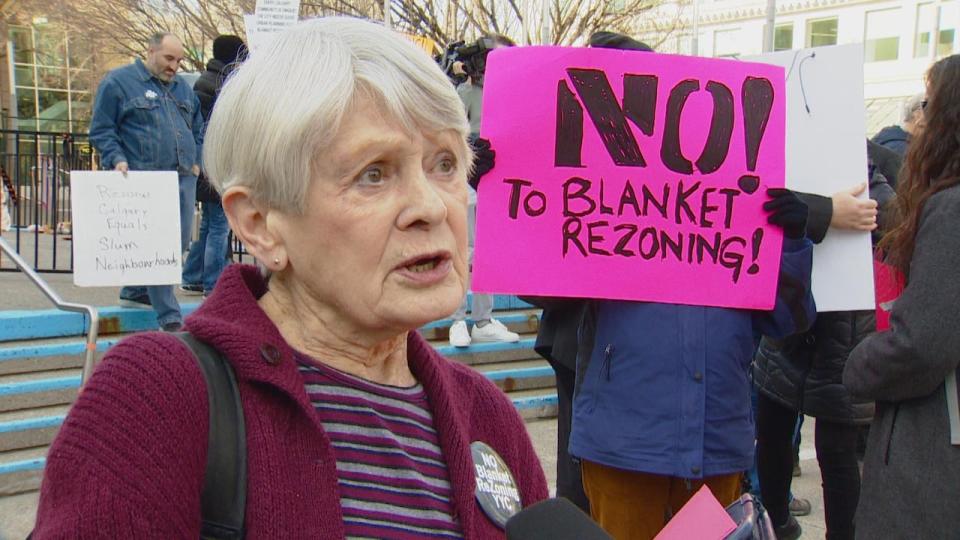
Barbara Jessiman, who lives in the northwest community of Bowness, says she doesn't want city council to approve this proposal, but she's looking forward to hearing what people have to say about it. (Anne-Marie Trickey/CBC)
Among Jessiman's worries are that new developments won't be affordable.
"We're looking at the loss of older, affordable homes," she said. "Bowness is undergoing a huge, huge reset … there are older homes coming down."
"It's a grand day for developers and speculators, and not so much for homeowners and renters."
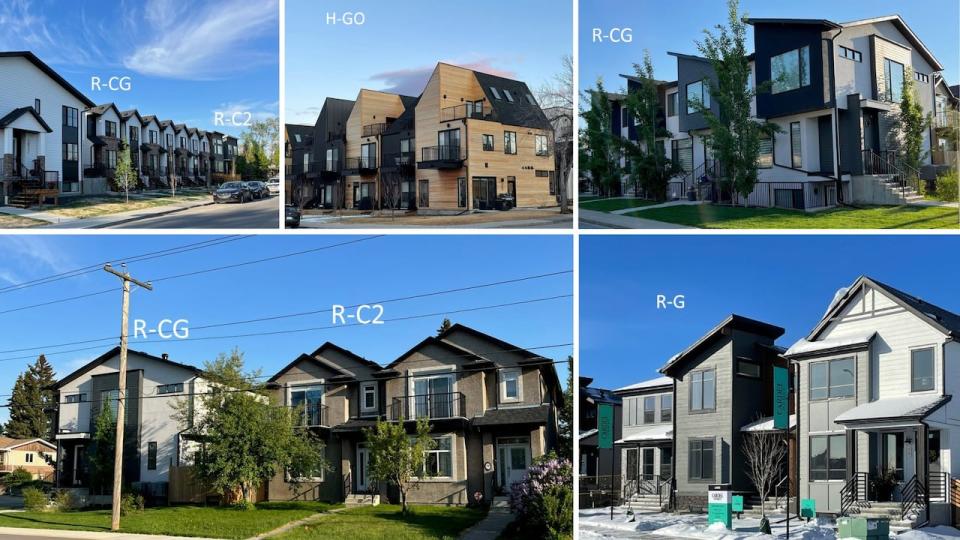
Different zoning examples in various communities around Calgary, according to images from the city's website. (City of Calgary)
When asked about the term NIMBY — which is an acronym for "not in my backyard" — Jessiman called it a "massive, massive insult" to people who are opposed to this proposal.
"It's a really fast and dirty way of dismissing legitimate concerns and I just hate it."
Federal funds not contingent on rezoning, says city admin
Whether or not federal funding would be impacted has been a key component in the debate.
In Sept. 2023, after being sent a letter from Sean Fraser, the federal minister of Housing, Infrastructure and Communities, Calgary Mayor Jyoti Gondek took to X, formerly known as Twitter, to express concerns that the federal government wouldn't fund the city's housing strategy unless its zoning laws were changed.
But on Monday, city administration said that rezoning is not required for Calgary to get federal money under the Housing Accelerator Fund (HAF), a federal government initiative to address the housing crisis.
As part of the HAF, the federal government announced near the end of last year that it would give $228 million to Calgary over a four-year period for the construction of 6,800 new homes.
On Monday, when asked to clarify, Gondek told reporters that the city's HAF application was submitted before the federal government added rezoning provisions.
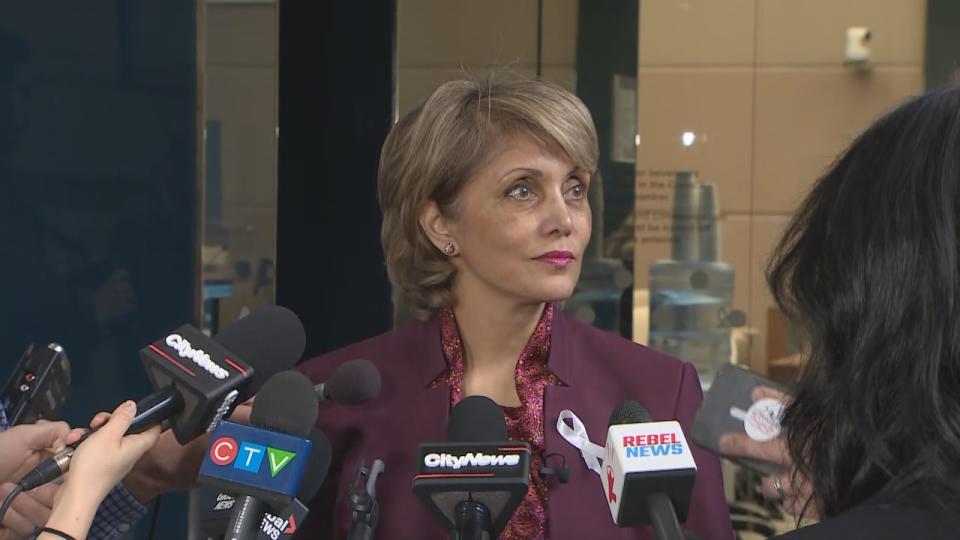
Calgary Mayor Jyoti Gondek says council is anticipating the public hearing will take days to complete. (Mike Symington/CBC)
"Last year in June, we submitted a Housing Accelerator Fund application long before the federal government started announcing that they were going to put conditions on funding," she said, adding that the crux of the deal the city is trying to strike with the federal government is the delivery of units.
"When it comes to the number of units that we can deliver, there are so many different ways that we are trying to accomplish this."
The mayor said she believes there will be a series of amendments to the rezoning proposal put forward by members of city council, and that the vote on approving or rejecting the proposal likely won't be a "straight up and down" vote.
The public hearing is a necessary step in amending the land-use bylaw. City council will debate the blanket rezoning proposal once the public hearing is finished.
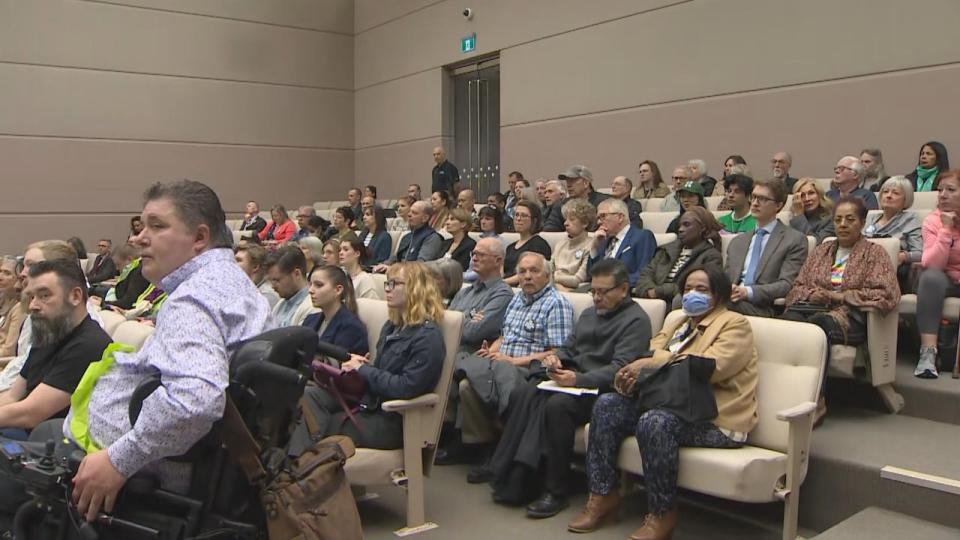
A packed gallery at council chambers as day one of the highly anticipated public hearing on blanket rezoning kicked off. (Mike Symington/CBC)
But that may not happen for several more days. The public hearing will go until 9:30 p.m. today, and its expected that it could take until next week to hear everyone who wants to speak.
Almost every city councillor attended day one of the public hearing in-person save for Ward 4 Coun. Sean Chu, who attended remotely.

